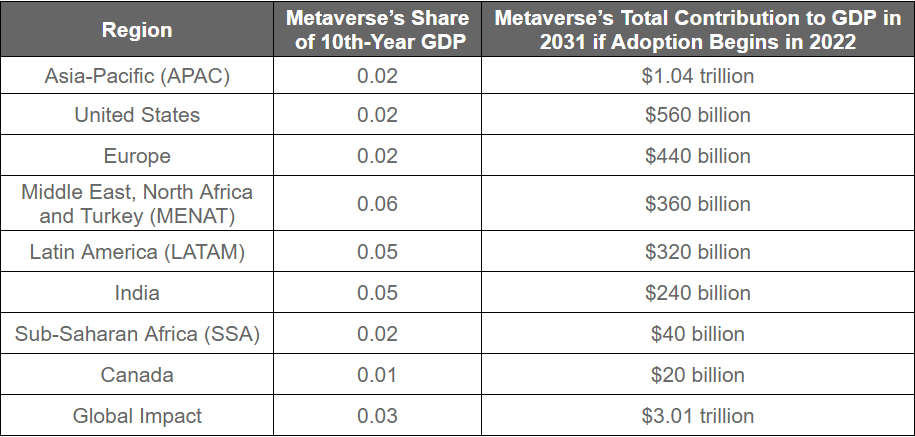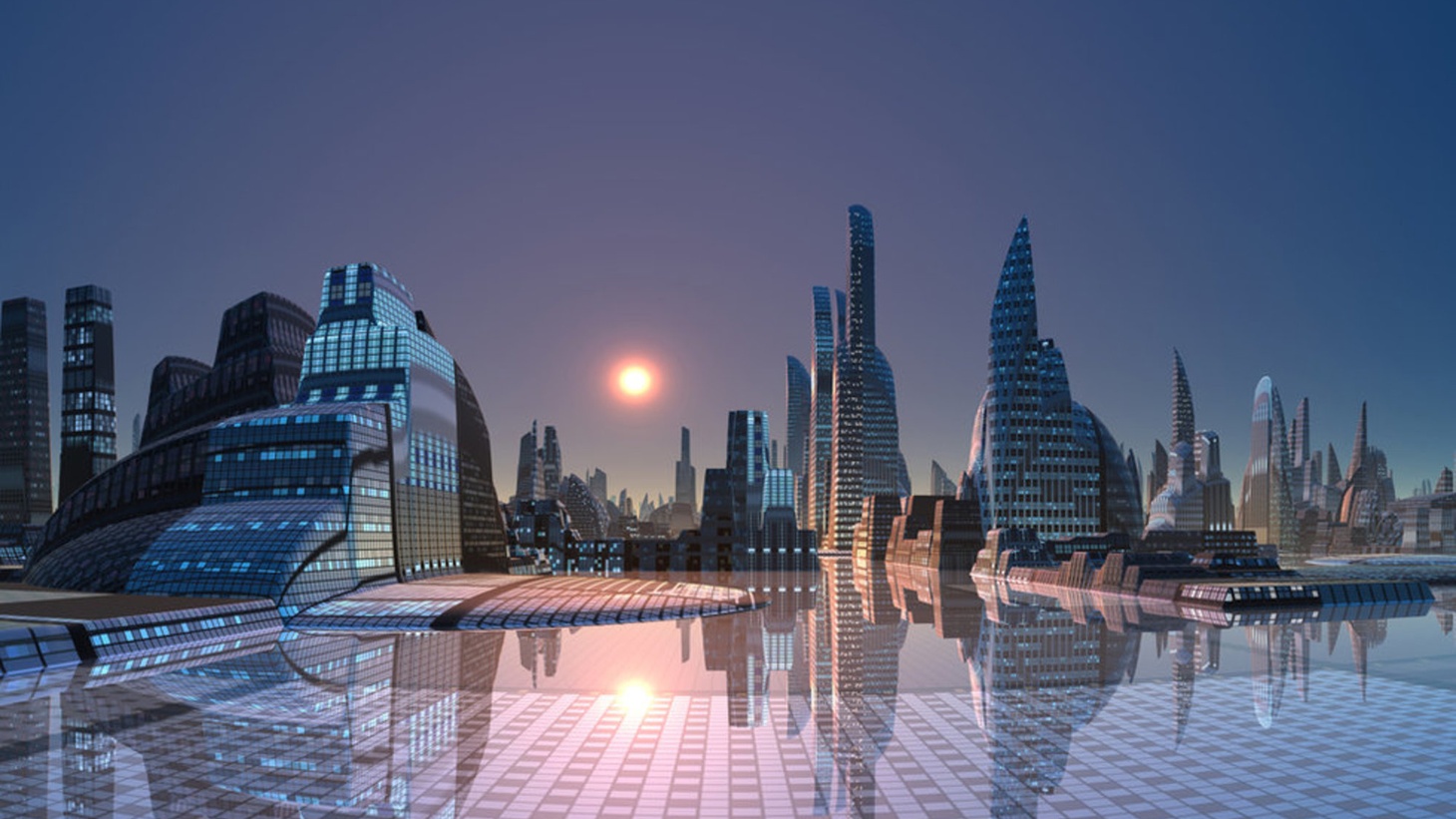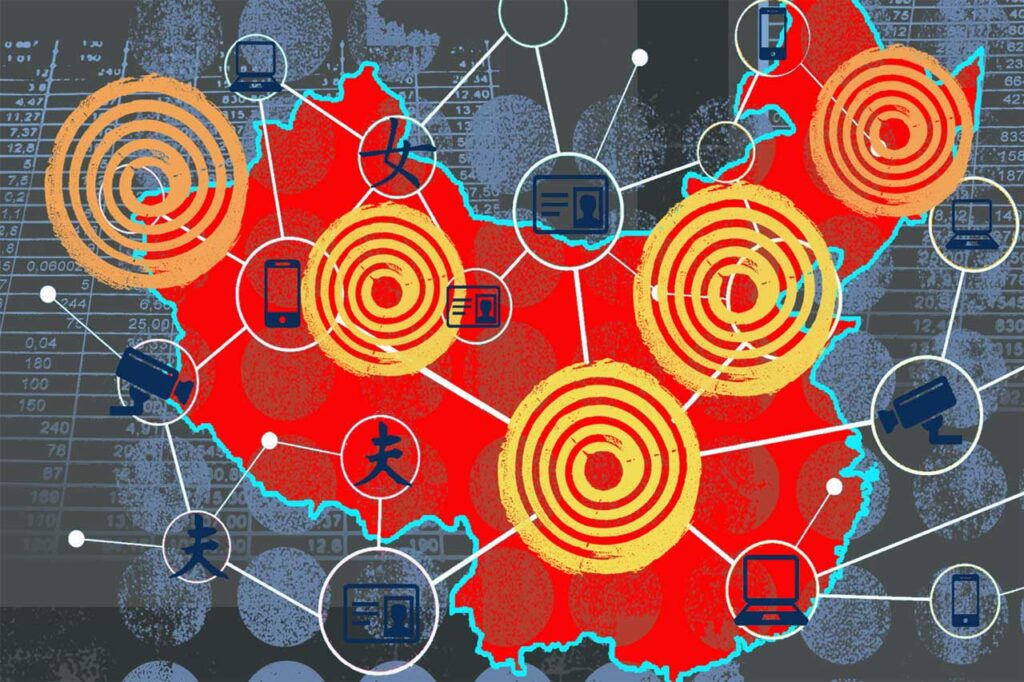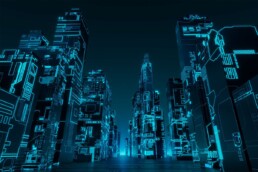It’s well known that many of the big tech companies are now eyeing the Metaverse as the next stage in the development of the internet but what’s less well known is that countries and governments are also planning to enter the space.
Why Do Countries Want To Enter The Metaverse?
The Metaverse offers countries a multitude of ways to grow and develop local industries whilst also heightening levels of citizen engagement. Governments around the world have already spent millions developing VR/AR applications to provide training for public sector workers and to help connect remote regions to each other and the government itself.
The Metaverse is simply the next stage in the use of technology to bolster the economy and improve worker education. The training within a virtual world offers a much greater degree of freedom for the trainee and can be more immersive than that offered in the real world, given the lack of real life consequences for any mistakes made. A study by the University of Maryland even found that people retain information better when learning in a virtual one rather than on a screen.
The Metaverse will also be crucial to economic growth as the transition from the physical world to a digital one accelerates. A report by Analysis Group found that the Metaverse’s contribution to global GDP by 2031 could be as high as 2.8%, mostly within the Asia-Pacific region.
 How much the Metaverse will contribute to GDP if adoption begins in 2022.
How much the Metaverse will contribute to GDP if adoption begins in 2022.
Countries want to help develop the Metaverse due to its importance to the growth of the global economy and its potential to improve the lives of citizens and their participation in a democracy.
Which Countries Have Developed Projects in the Metaverse?
Many countries have already made their first steps into the Metaverse. Singapore has created a virtual replica of the city to help designers visualize growth in response to population changes and new developments. Saudi Arabia has done something similar for its futuristic “linear city” of Neom to allow people to experience it before it’s even finished.
 Virtual Singapore
Virtual Singapore
 Saudi Arabia’s futuristic city of Neom in the Metaverse
Saudi Arabia’s futuristic city of Neom in the Metaverse
Barbados became the first country to open an embassy in the Metaverse at the start of 2022. Gabriel Abed, the leader of the project believes the embassy is insignificant relative to the potential of the Metaverse to revolutionize diplomacy, saying “The embassy is a small thing.
The big thing is what governments can do together when land is no longer physical land and limitations are no longer part of the equation.”. The embassy is built in Decentraland and features a virtual teleporter and e-consular services.
Despite Seoul already being one of the most connected cities in the world, it will become even more so with the “Metaverse Seoul” project. The South Korean government aims to use virtual reality to improve city services including planning, administration and eventually adding support for virtual tourism.
The CIO of Seoul Smart City Policy, Jong-Soo Park, has said it will do so by making it easier for citizens to connect with government services and each other. The project is estimated to take 5 years and will even include virtual coworking spaces for citizens as well as AI assistants.
There’s already dozens of ways countries are building projects in the Metaverse to improve citizen access to public services and to help in city planning. However, as the Metaverse is still under development, the potential is limitless and largely unpredictable. It might one day be used to virtually address citizens and allow millions to participate in public gatherings or political debates from their homes. It’s already easy to imagine a virtual UN conference between governments taking place some time this century.
How Do Different Countries View Its Development
The development of the Metaverse is viewed differently around the world. According to the World Economic Forum developing countries are more excited about its potential than developed ones with more than two-thirds of people in China, India and Peru reporting positive feelings towards mixed reality technologies, compared to fewer than a third in Japan, Great Britain and Canada. However, regardless of the country and demographic, all respondents expect the Metaverse to have a major impact on their daily lives, specifically in terms of education and entertainment.
 Will authoritarian regimes use the Metaverse differently compared to democratic ones?
Will authoritarian regimes use the Metaverse differently compared to democratic ones?
Metaverse development at a governmental scale will likely be viewed differently by democratic and authoritarian regimes. Those which are more authoritarian may view it as a way to influence people en masse or quasi-control them by creating something similar to 1984.
China has already announced its Digital Silk Road initiative worth $200 billion and there are worries that an investment of this scale into the Metaverse could allow it to control the backbone of the internet in many countries. Whether this worry is justified isn’t clear yet however as it isn’t obvious how the infrastructure of the Metaverse will be built nor how countries will interact across it but it raises a scary possibility.
Conclusion
The potential impact of the Metaverse upon countries and cities is limitless and we probably won’t know the potential impact of the technology for at least another decade. For better or worse, it will revolutionize the way citizen’s interact with governments and each other as well as how governments interact around the world.
Get more insights like this on the business and marketing of the metaverse delivered to your inbox. We’ll never spam you, ever.
Harry Harrison
After spending 3 years traveling around Australia and Asia I began writing about finance whilst stuck at home at the beginning of 2020 thanks to Covid. I've always had a strong interest in business and technology and he thoroughly enjoys learning more about anything connected to the Metaverse, NFTs or crypto. In my spare time he enjoys playing soccer, pool or chess and reading about history, science and technology.
Related Posts
June 14, 2023
How To Successfully Launch Games on Roblox, with Zach Letter of Wonder Works
How can developers successfully launch games on Roblox? In my recent…
May 20, 2023
Branding Success: Guaranteed Engagement in The Sandbox
The Sandbox Metaverse is a really interesting opportunity for branded…
March 7, 2023
Metaverse Marketing – The Emerging Practice
As the digital world continues to evolve, businesses need to stay ahead of the…



